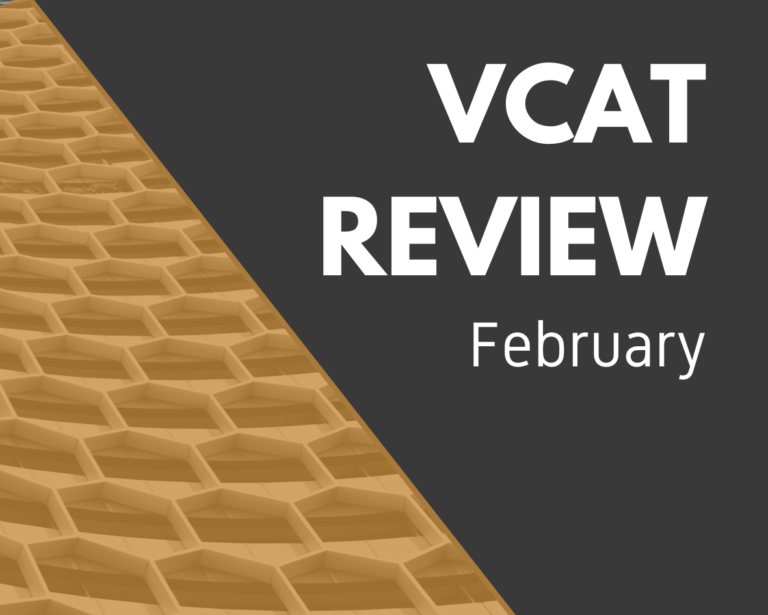Calderon v Nillumbik SC [2024] VCAT 164 which related to a preliminary hearing involving several matters including who the identity of the applicant was. While this particular question was relatively simple for the Tribunal to deal with, the Tribunal did make the following observation:
40. At this point I am compelled to note that council should be seeking further information from objectors about their correct legal identity to prevent these matters from arising at the Tribunal. However, for completeness I note that councils regularly accept applications for permits from non-legal entities such as business names of firms rather than company names. These too are non-legal entities and thus could not file permit applications. Greater scrutiny of the legal identity of all those participating in the planning process by council obviates downstream complications.
The comment about Council’s regularly accepting applications for permits from non-legal entities who are not able to file such applications is worth highlighting to practitioners on both sides of the ‘fence’.
Ventia Pty Ltd V Whittlesea CC [2024] VCAT 173 involved a proposed telecommunications facility which the Tribunal described as unusual as it proposed the co-location of equipment for the three main telecommunication carriers (Optus, Vodaphone (TPG Telecom) and Telstra). The Council refused the application on visual amenity grounds and the Tribunal, to a degree, agreed stating:
41. We accept the Council’s submissions that the amenity of these dwellings will be affected in a detrimental way in comparison to the existing circumstances, as the monopole will be highly visible from their SPOS and the northern end of their front yards. However, we agree with Mr Evan’s submissions that the extent of adverse impact on the amenity of the area is minimal as it is broadly limited to these two dwellings, due to the separation distance and orientation of other nearby dwellings along Japonica Street.
However, the Tribunal went on to find that a net community benefit nevertheless existed given the unusual nature of the proposal hosting all three main service providers and that a permit should issue stating:
53. Despite the significant visual impacts of the proposed monopole on the properties at Nos 31 and 33 Japonica Street, we have concluded that these relatively confined negative impacts are outweighed by the much broader, community-wide positive benefits arising from allowing a new telecommunications facility to be constructed that co-locates the equipment of Optus, TPG and Telstra.
In one of the longer Tribunal decisions at 506 paragraphs, the long running saga in Box v Stonnington CC [2024] VCAT 149 appears to have been resolved. As several recent decisions have had cause to do, this decision addressed the recent Supreme Court decision of Myers v Southern Grampians SC and the extent of the Tribunal’s discretion. In its very last paragraph after having set out its findings the Tribunal stated:
506. I will leave it to the Council as to whether the permissions should be consolidated into one document and, if so, how that might be achieved.
The consolidation of all permissions into one permit has some obvious advantages. This line would appear to suggest that such an approach is potentially available, and that Council need not necessarily issue two separate permits; one covering the ‘Council only’ matters and the other the Tribunal matters.
Alphington Grammar School v Yarra CC [2024] VCAT 148 was of interest for its subject matter; use of land as a sub-acute facility (hospital) offering overnight and same-day mental health services for those suffering mild to moderate psychiatric conditions. Of note was the proposed facilities’ location adjacent an existing school, with the Tribunal hearing significant argument about whether the adjacency of the land uses was compatible. Ultimately the Tribunal found that there was no issue of compatibility subject to compliance with a developed Operational Management Plan.
Glossop Town Planning enjoyed another busy month appearing before the Tribunal either as an advocate (Hew Gerrard) or expert planning witness (John Glossop). If Glossop Town Planning could potentially be of assistance with any VCAT related matters, please contact our office on 9329 2288 or via email at mail@glossopco.com.au.


